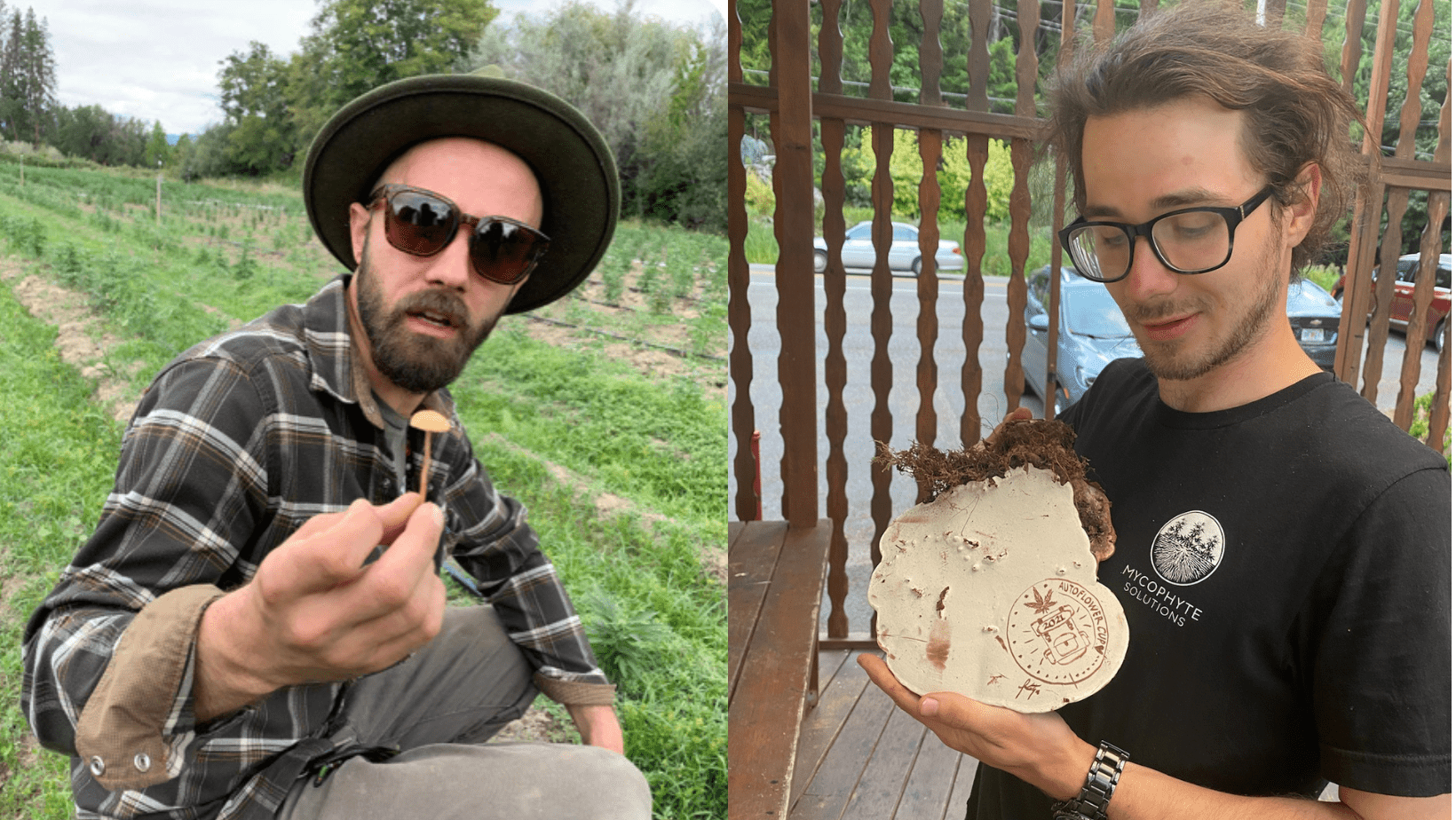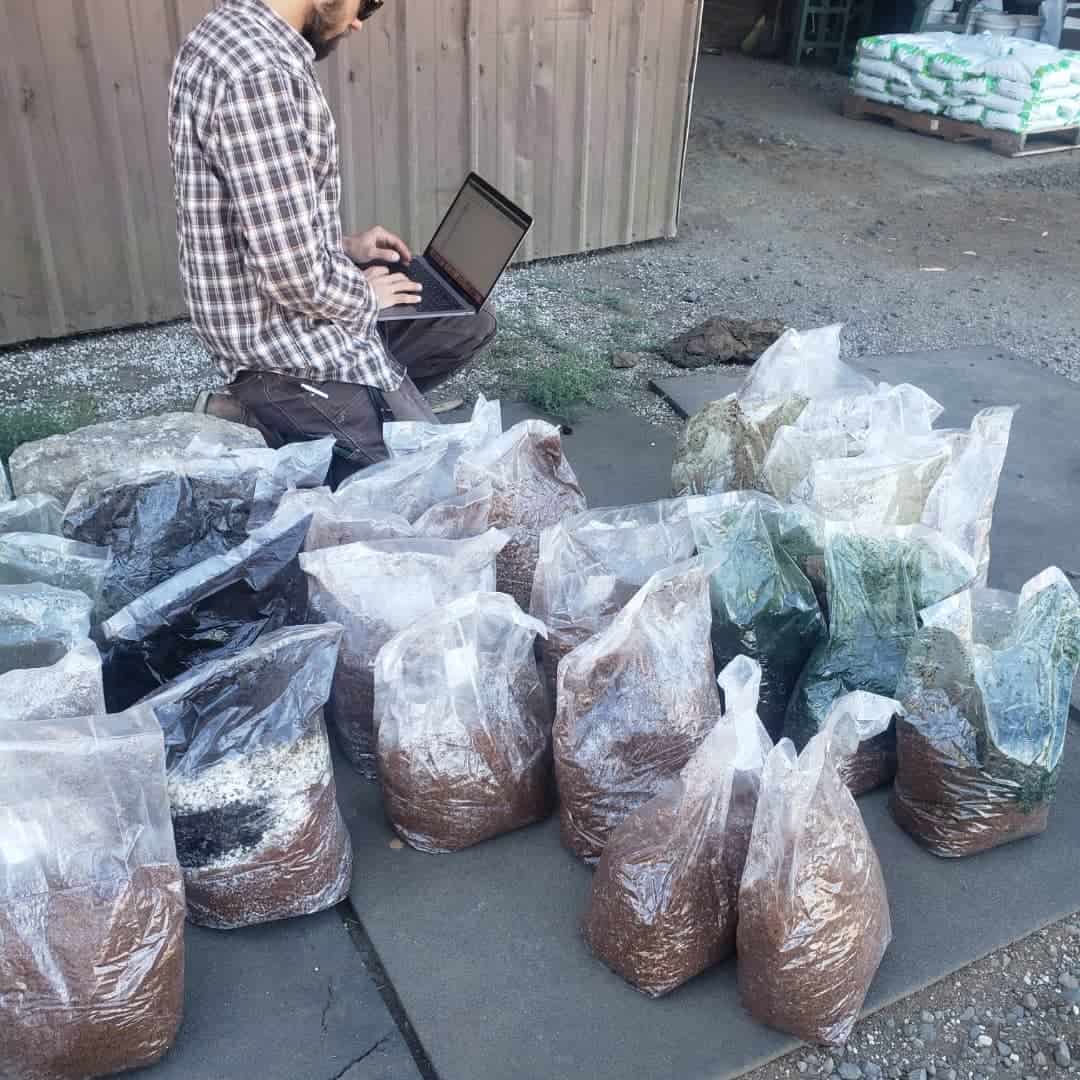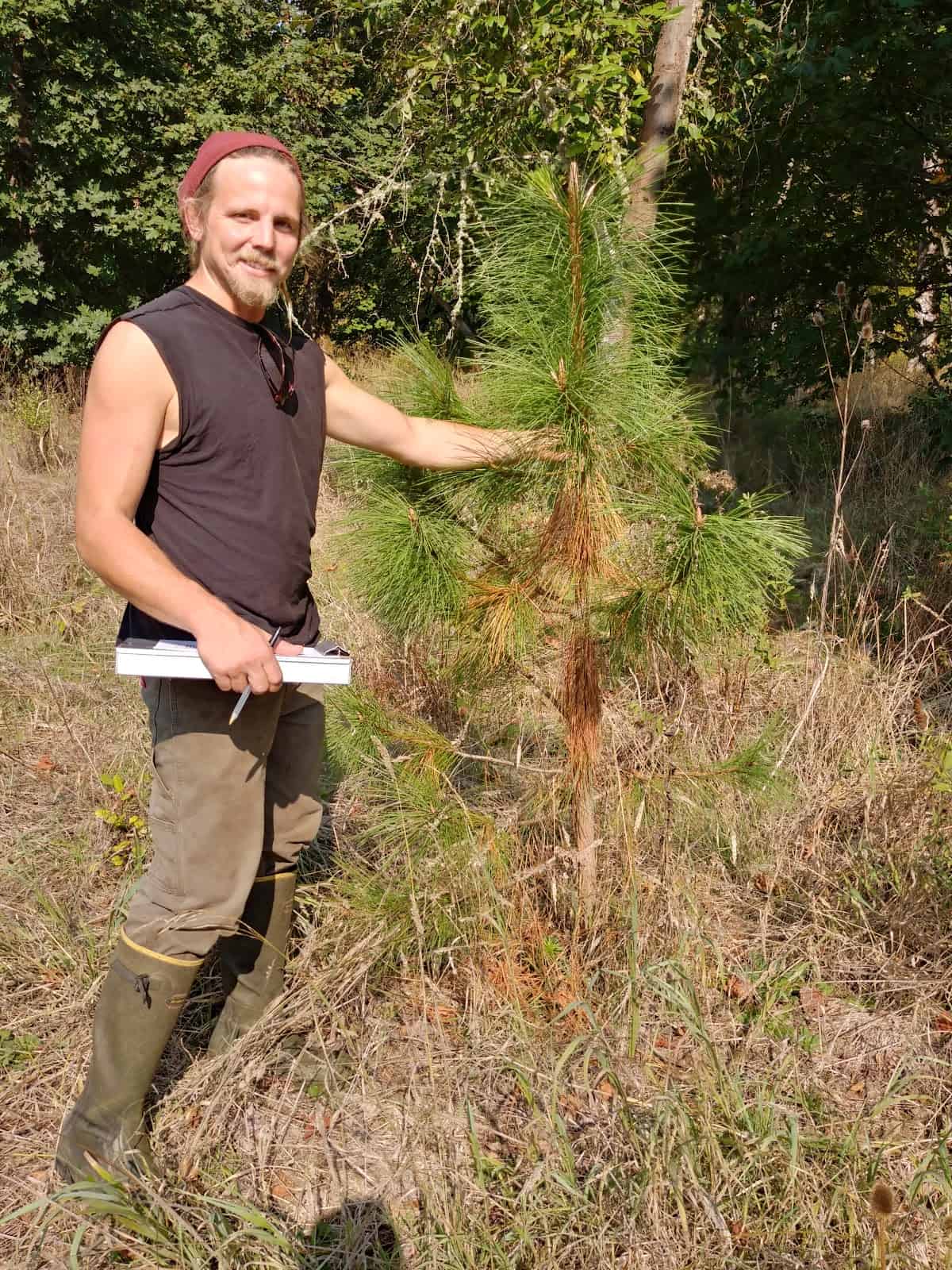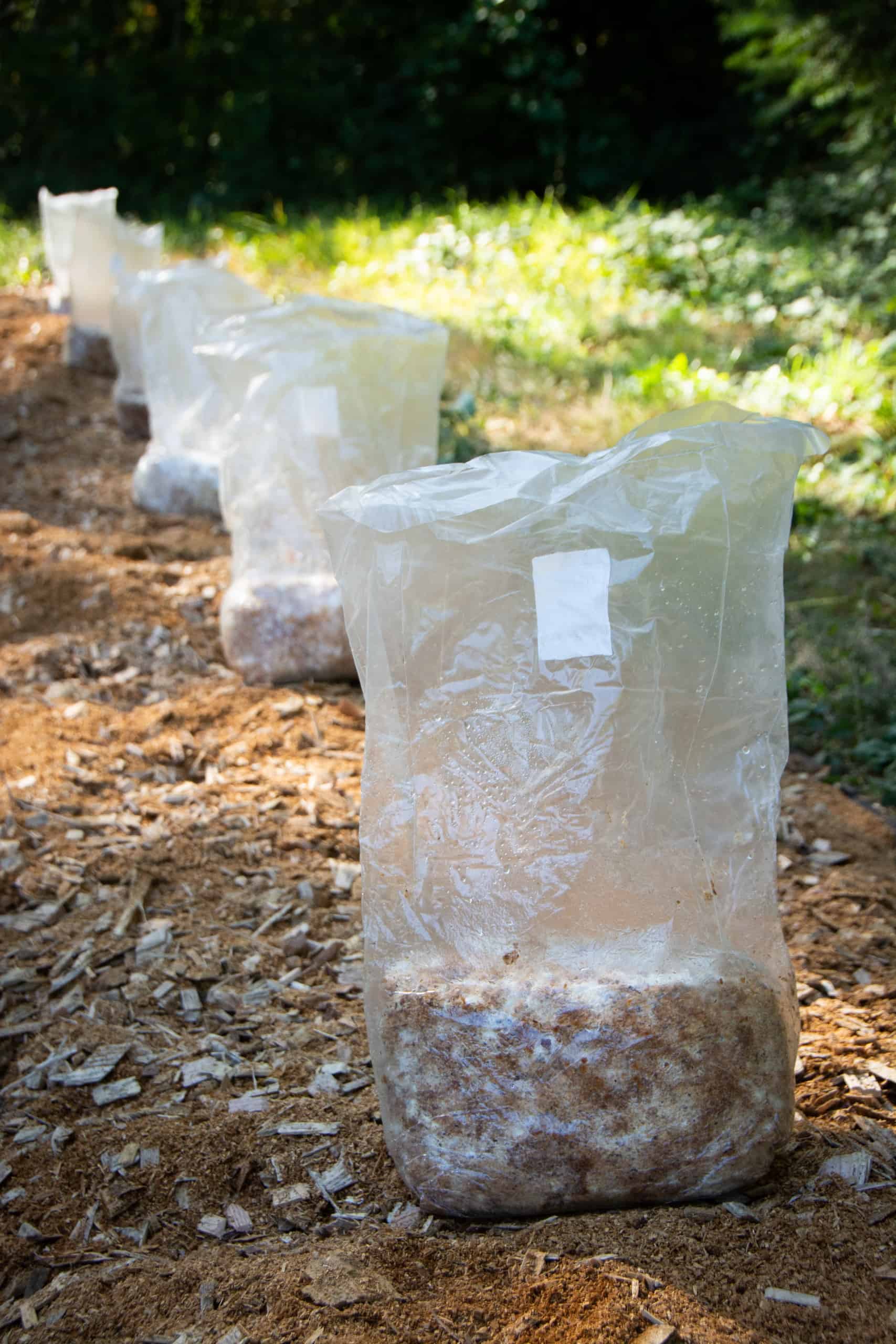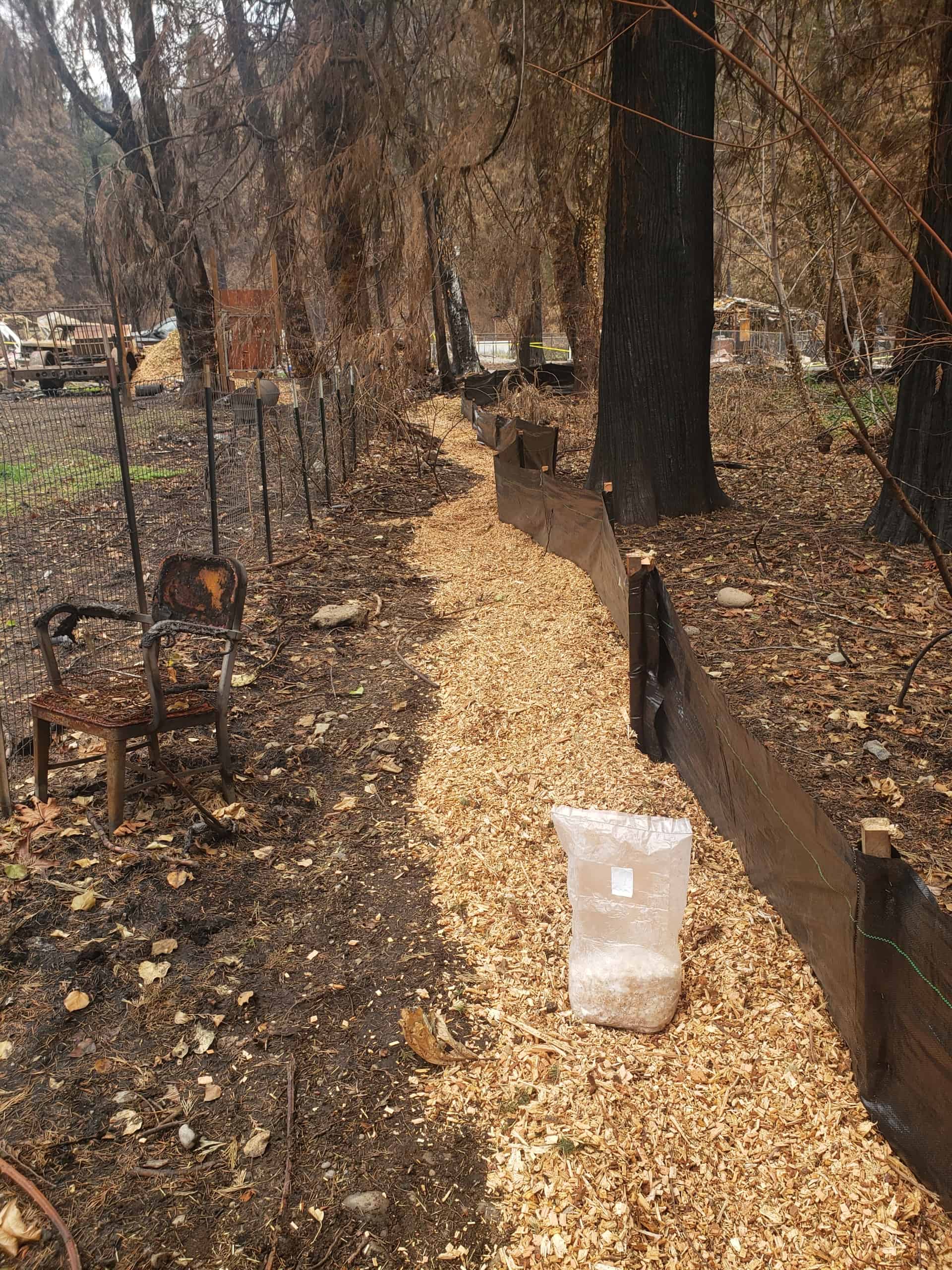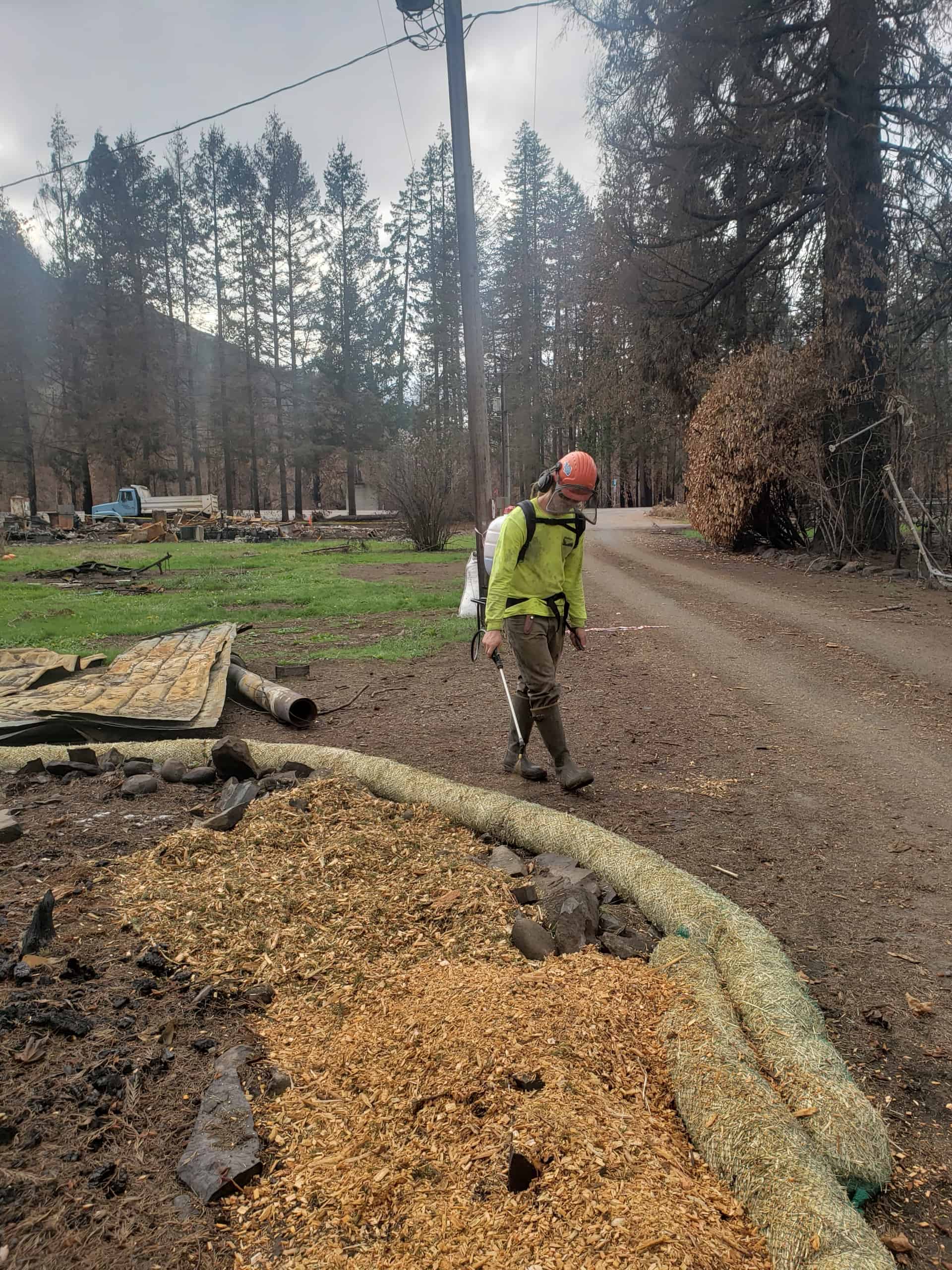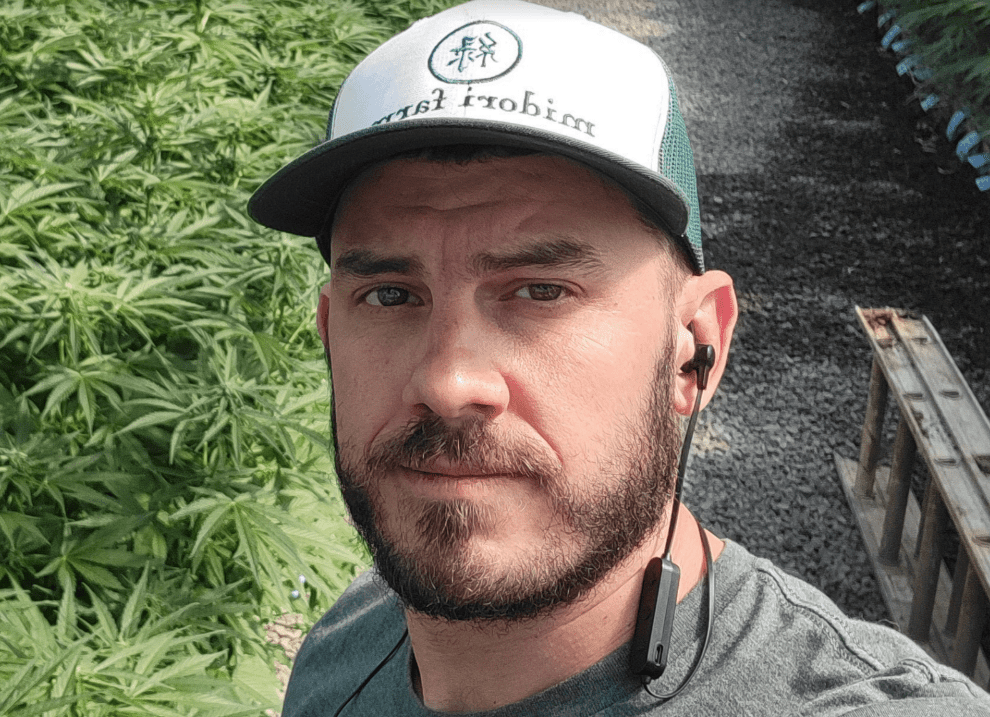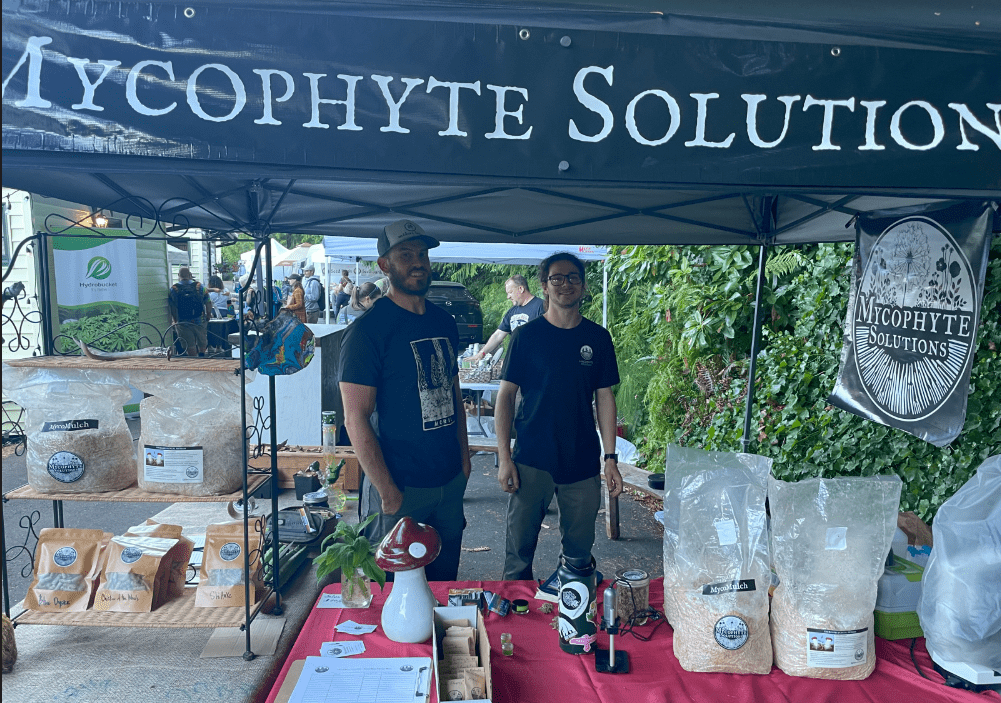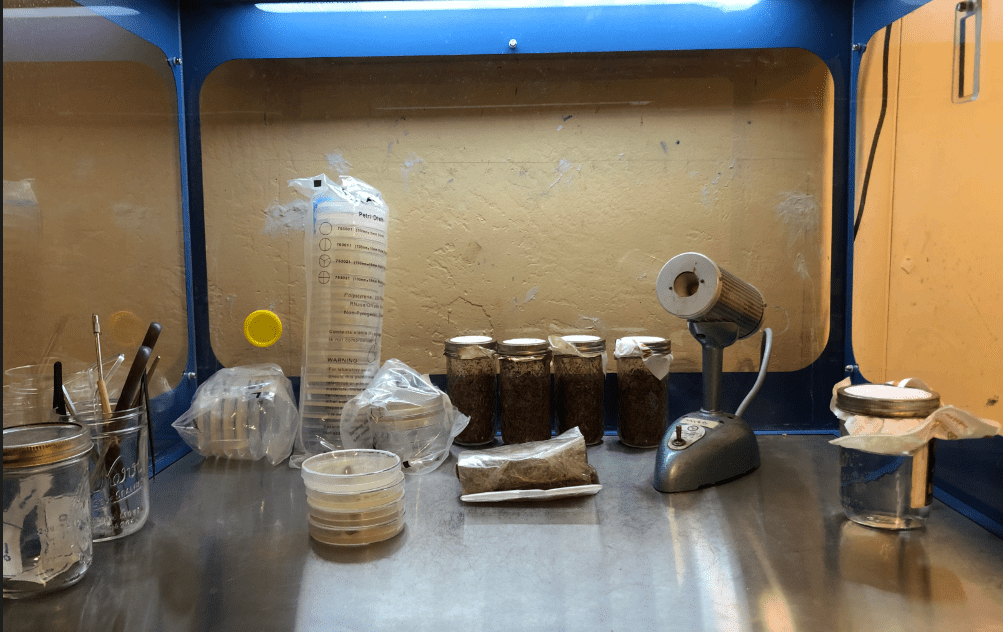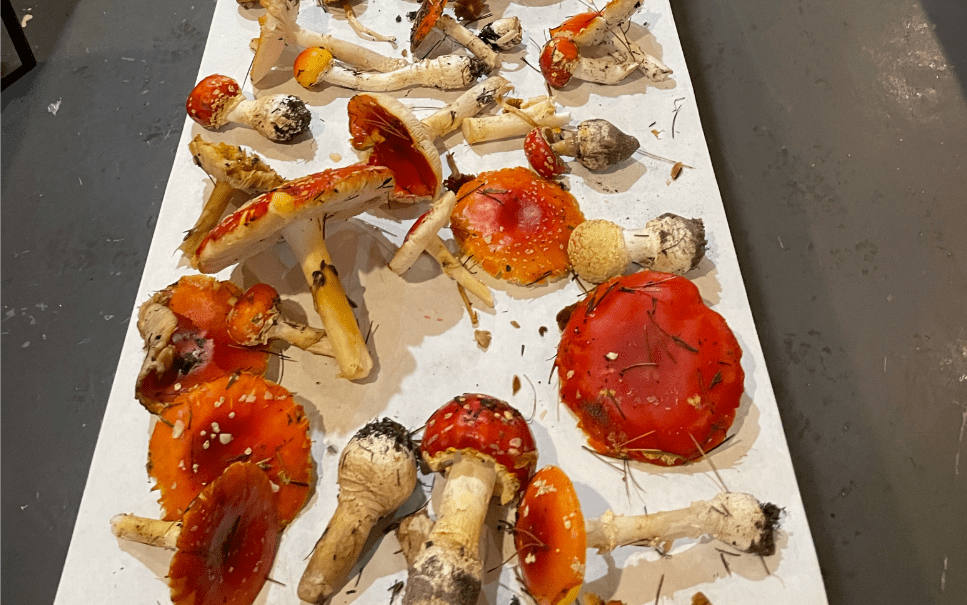Ask any grower and they’ll tell you that the joy of growing cannabis comes with plenty of problems. Nutrient deficiencies, root rot, powdery mildew—perils abound in the cultivation of a plant as high maintenance as it is beautiful. Enter Mycophyte Solutions, a group of horticulture specialists and plant scientists whose wide ranging skills promise the right tool no matter the occasion. As Mycophyte Solutions consultant Aryeh Hertzbach says, “If there’s a problem, we can solve it with biology.”
Professional agronomy may not be something Hertzbach anticipated pursuing, but the fact that he wound up in cannabis is certainly no surprise. “I was very much raised in the cannabis industry,” he says. “I have cannabis to thank for basically my whole existence.” Hertzbach’s parents came to Oregon on the heels of a Grateful Dead tour. When they stopped in the Eugene area, local customs such as the flagrantly eccentric Oregon Country Fair convinced them the place was deadhead compatible, and they put down roots.
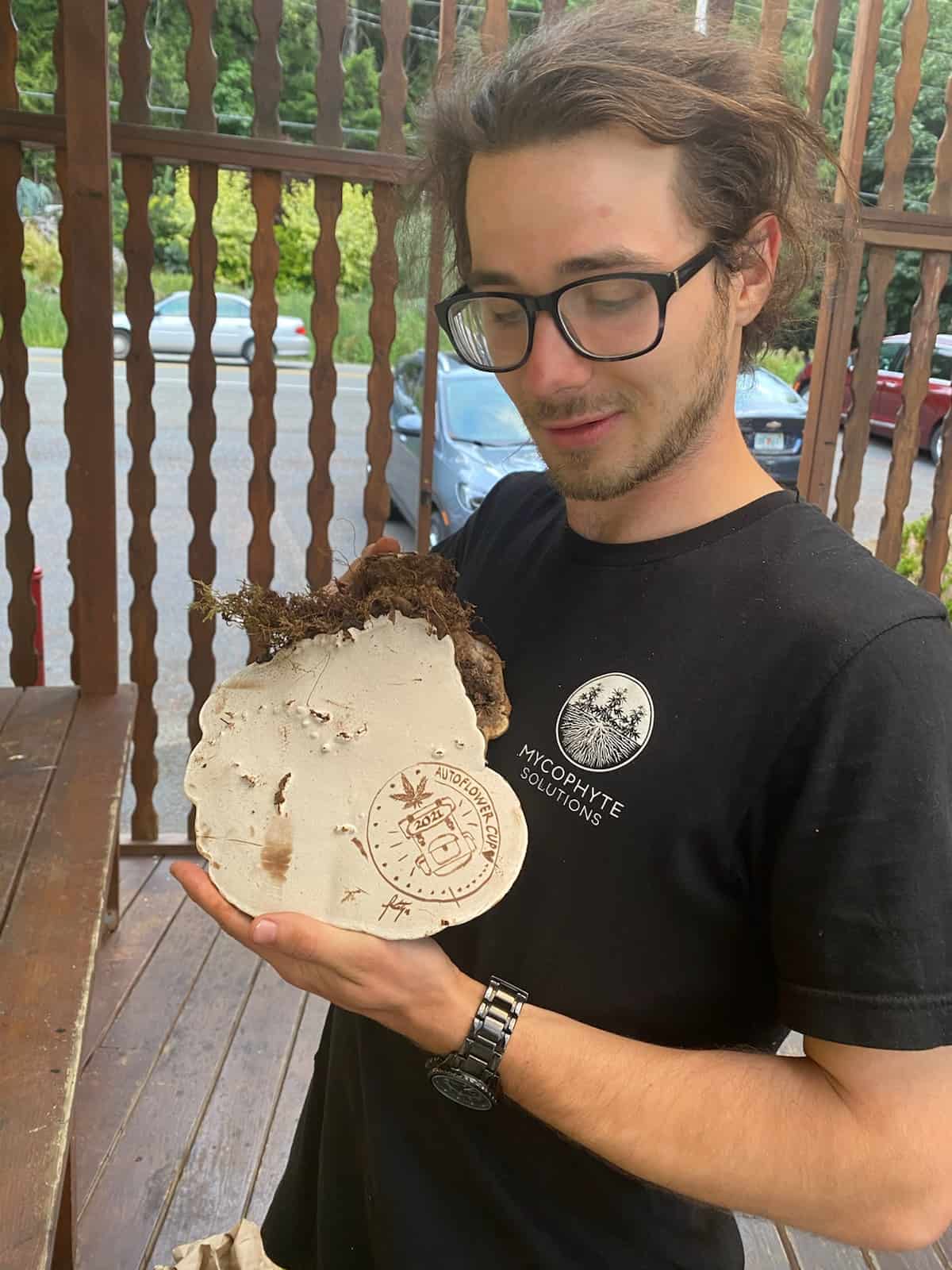
In Hertzbach’s childhood community, cannabis was a pillar of the local economy. But like other children raised in the legacy market, he learned at a young age how high the stakes could be. “The police raided our house before school, and my stepdad was taken away,” he says. Herzbach started high school with his mother scrambling to make ends meet after his stepfather’s sentencing. Fortunately, the legacy community stepped up to help. “My mom’s friends didn’t have much money to give her but they gave her weed,” he says. “I was helping pay the bills by selling weed in high school.”
Left: Aryeh Hertzbach
When Oregonians voted to legalize cannabis, Herzbach was thrilled and relieved that he wouldn’t have to risk his freedom to build a future cultivating the plant that had supported him his whole life. “I was very passionate about cannabis. It was a familiar smell and sight—it was part of my culture,” he says. Since he was too young to work on legal farms, Herzbach took a job at the cannabis supply company Aurora Innovations. His job at Aurora was initially limited to grunt work, but his bosses realized he had a sharp eye when he caught some rogue fungus gnats before they reached customers. He was promoted to the research and development department, where he met Mycophyte Solutions co-founder Kyle Kaszinski, a plant biologist from Illinois who came to Oregon with an interest in cannabis agronomy. Kaszinski’s research focus during his master’s program was mycology, and the two spent their work hours nerding out over their shared passion for soil systems and regenerative farming. They hatched a dream to become independent soil consultants to the cannabis industry.
Right: Kyle Kaszynski
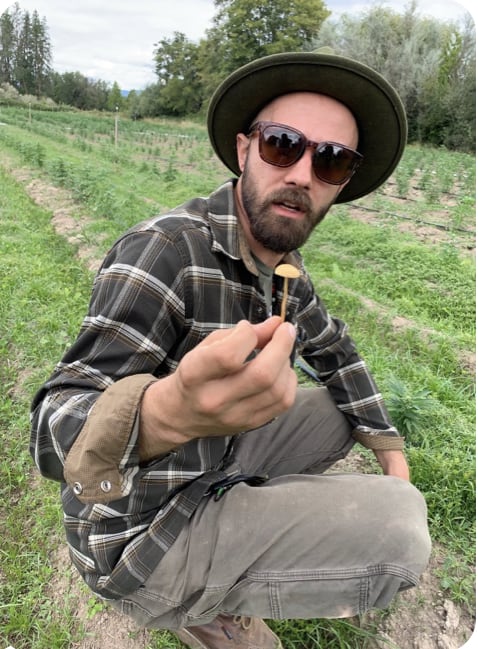
They got their first break from that most venerable of hippie institutions, the Oregon Country Fair. “I was working at the fair and was told about a problem with their compost—it wasn’t breaking down well, there were flies, and the neighbors were complaining,” Hertzbach remembers. “I said, hey I’m a consultant! I want to solve your problem!” He got in touch with Kaszinski, who was already in the process of putting together a consulting business (along with Brandon Potter and Sam Schall), and they put their heads together to figure out just the right fungal and biological tools to keep the compost smell from killing the party vibe. “That was the inception of our business,” says Hertzbach.
The Mycophyte consulting process is less about bringing their clients a specific set of methods than creating a custom set of solutions according to their individual needs.
“There’s no one size fits all answer,” says Kaszinski. The first step toward getting higher yields with less investment is often as simple as ignoring the instructions on the fertilizer bottle, which typically recommend adding far more than is healthy for the soil.
“Excess nutrients cause toxicity in the soil,” says Hertzbach. “A more biologically diverse soil will take more nutrients from the soil.”
Once a client has been weaned off frontloading fertilizer, the soil is ready to have more fungus and bacteria introduced to create the living system in which cannabis best thrives. “We’re trying to regenerate the soil,” Hertzbach says. “Adding a ton of fertilizer and doing it all over again in industrial agriculture is starting to catch up with us—and cannabis is now contributing to that. As a farmer and a landowner, your best asset is your soil, and it’s slowly decaying.”
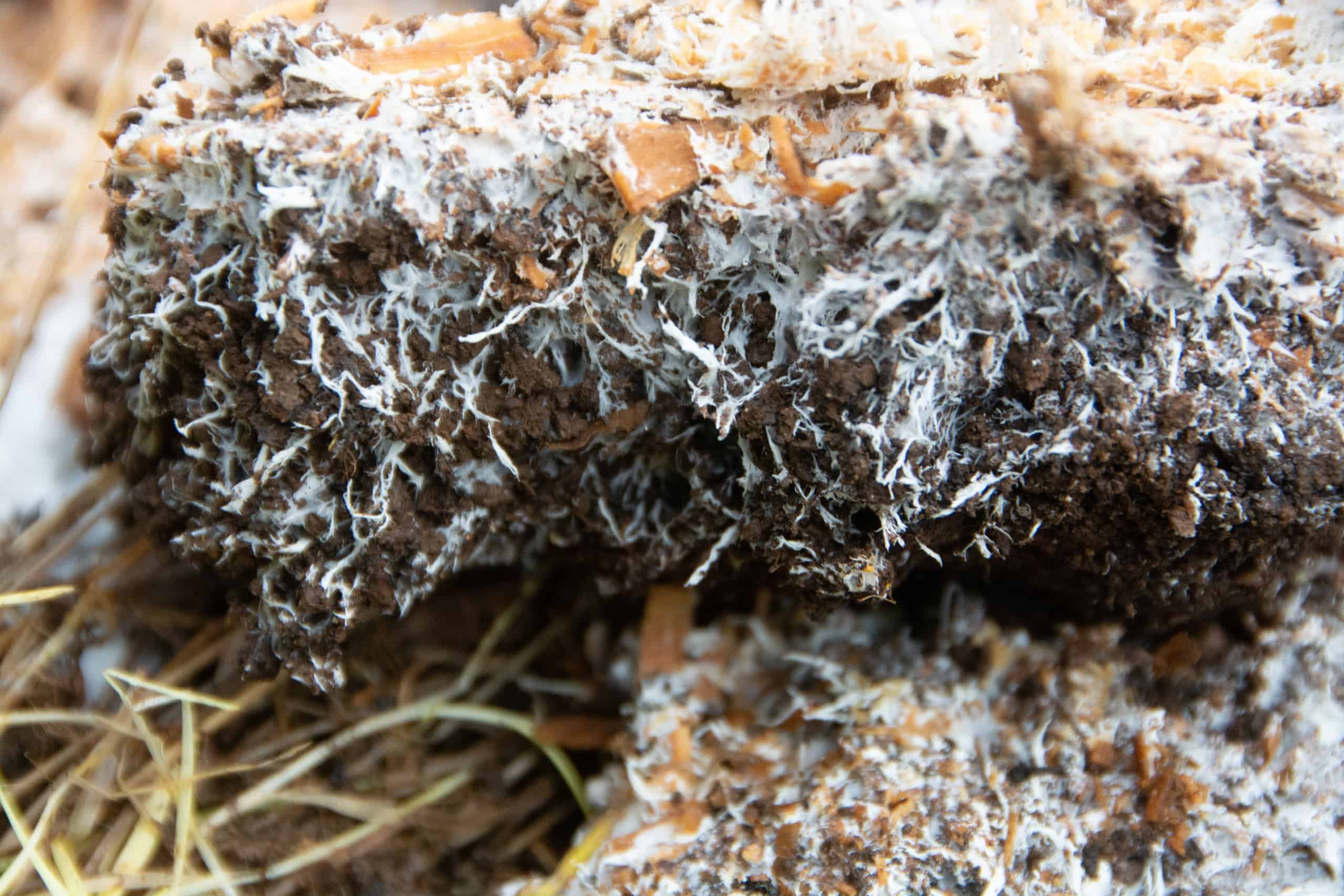
While some proponents of regenerative farming, such as the Canadian farm where Hertzbach apprenticed before joining Mycophyte Solutions, are staunch purists, the Mycophyte team plays the long game when it comes to reintroducing biology into fertilizer-overloaded soils. Not everyone is ready to go cold turkey on the fertilizers they’ve grown accustomed to. Kasznski tends to want to take it case-by-case. “I’ve seen a lot of organically grown cannabis plants that don’t look happy— sometimes conventional nutrients can be more sustainable,” he says. “It shouldn’t be so black and white; there’s a lot of gray area in hybrid techniques.”
This flexibility is key when approaching a new client, as Kasznski explains. “The first thing we do is have an onsite meeting with the grower or farm manager to discuss their needs and current practices, and where they could use our assistance.” After working with some of the best names in Oregon’s regulated industry, as well as a number of prominent growers in the legacy community, they have their system down. The initial meeting is followed by a detailed report offering bespoke solutions according to the needs of the farm, and could include everything from soil sampling and testing to testing the plant tissue to find fungal diseases and understand the bigger picture of toxicities, deficiencies, and nutrient intake. Thanks to their combined expertise, the team is confident that there is no task too big or small for Mycophyte Solutions. “Some farms want us to help them improve their living soil beds with solutions such as fungal inoculums, whereas medical farms, who have a limit on how many plants they can grow, are looking for us to help them grow bigger individual plants by dialing in their feeding programs,” says Kaszynski.
“Biological diversity is key,” Kaszynski says when asked about general soil science tips, though he also cautions not to underestimate giving your plants the right amount of water. But focusing on a thriving soil ecosystem is a crucial framework for ensuring productive yields long term.
Ultimately, the issues concerning soil health and biological sustainability faced by cannabis farmers are a microcosm of the larger agricultural catch-22. Struggling farmers have economic needs that require high output, which can be prohibitive to trying new regenerative practices.
For Hertzbach, the cannabis industry has provided the perfect ground for working out the most effective solutions that can now benefit agriculture as a whole. “Cannabis has given us a template to experiment, and now we can use our prior knowledge in cannabis and apply it to these larger issues,” he says. “Not saying we’re going to do it, but we’d love to save the world.”
Scroll to see more images from Mycophyte Solutions:


